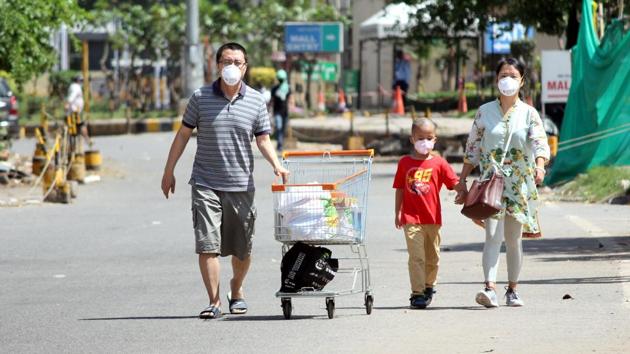Covid-19: What you need to know today
India won’t be the only country whose economy is affected by Covid-19. The global economy itself could go into recession, the International Monetary Fund has warned.
The US finally agreed on a deal on a $2 trillion stimulus package, the largest ever in the country’s history – for comparison, India’s GDP is roughly $2.7 trillion – to help individuals and companies affected by the Covid-19 pandemic. Over the next few weeks, people are expected to start receiving cheques in the mail (those with children will receive more). States and businesses are expected to receive money too.

In India, several states and some central government departments have announced similar packages – but for specific worker groups. A larger relief package is expected. More importantly, it is needed. For three weeks starting March 24, India is in a lockdown with almost all economic activity suspended.
It will take time to understand the complete impact of this but here’s what we can safely assume: the lockdown will mean that India doesn’t meet its 5% growth target this year; it will also mean that India misses its 10% nominal growth target next year (2020-21). Investment and consumption will both fall. There will be job losses. More people will be pushed back into poverty. The crisis in the banking sector, both a cause and effect of the pre-coronavirus slowdown in India, will become worse (unless the Reserve Bank of India comes up with a very generous forbearance policy). Business and consumer sentiment will decline. The worst affected will be the informal sector – hit hard by 2016’s demonetisation and further weakened by 2017’s implementation of a unified Goods and Services Tax (which, to be fair, is fundamentally reformist, but just proved too painful for some) – but a three-week suspension of economic activity will hit just about every business. And the worst hit will be the poor, including unskilled and semi-skilled migrant workers, thousands of whom are now trying to walk back home after rail and interstate bus services were stopped.
Everyone, not just unskilled construction workers or skilled factory workers, is worried about what the lockdown and the crisis will do their careers and finances. The VP of corporate strategy who is working from home is aware that strategy always comes after survival; the general manager of business development, who is also working from home, knows that there is not going to be any business to develop, at least not in the short-term. As an article in Vice magazine earlier this week put it: “This is how we get laid off. At home, alone… Over Zoom or e-mail.”
Sure, India won’t be the only country whose economy is affected by Covid-19. The global economy itself could go into recession, the International Monetary Fund has warned.
And if the lockdown works, to any extent, it will halt or slow the march of the infection, preventing a repeat of the kind of spread seen in Wuhan, Lombardy, and New York State. As on Wednesday, India had total 606 cases of Covid-19 and had seen 10 deaths.
India can then begin the arduous task of putting the pieces together and getting its economic engine chugging.
Any relief package announced by the Indian government has to do three things – it should directly transfer cash into the accounts of those who desperately need it (migrant workers would be top of the list in this writer’s assessment). It should focus sharply on sectors that are going to need help and offer this (banking and real estate would be obvious candidates, but just about every business, from auto to media, and textiles to engineering, needs help). And it should involve a huge government-funded (or partially government-funded) infrastructure-building exercise – a sort of new New Deal that can create jobs and also increase demand for everything from cement to steel.
That’s going to take money. Which is alright. India has to deal with the significant economic challenges posed by the pandemic in addition to the structural and cyclical issues with its economy that it was already dealing with – and if there ever was an opportune time for helicopter money, it is now, it is now, it is now.
Get Current Updates on India News, Lok Sabha Election 2024 live, Infosys Q4 Results Live, Elections 2024, Election 2024 Date along with Latest News and Top Headlines from India and around the world.




